Results
-
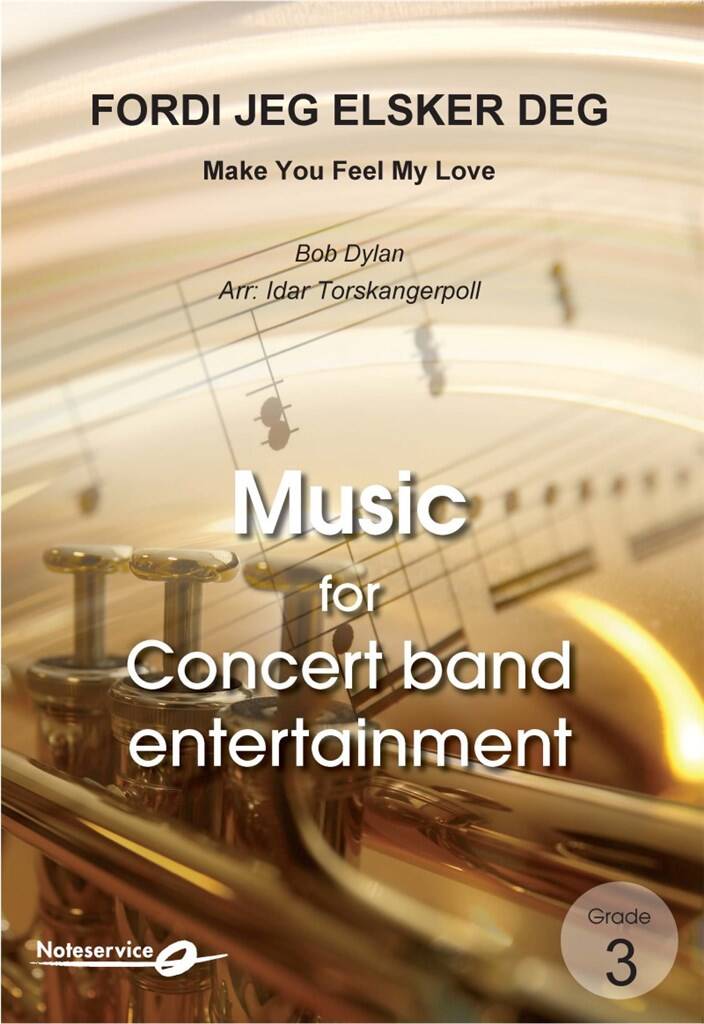 £149.40
£149.40Make You Feel My Love - Bob Dylan
This melody is the Norwegian version of "Make You Feel My Love" composed by Bob Dylan. The lyrics is translated by Bjarne Hjelmeland and the song performed by, among others, Norwegian singer Ingebjrg Bratland. The English version is also widely covered, notably by Adele. The lyrics is a tribute to love, and the song is a popular song for weddings. Watch balance all times, both regarding foreground/background and within instrument groups. The piece is in soft and middle soft dynamics. Make sure that it is not too loud, while maintaining marked dynamic variations.
Estimated dispatch 7-14 working days
-
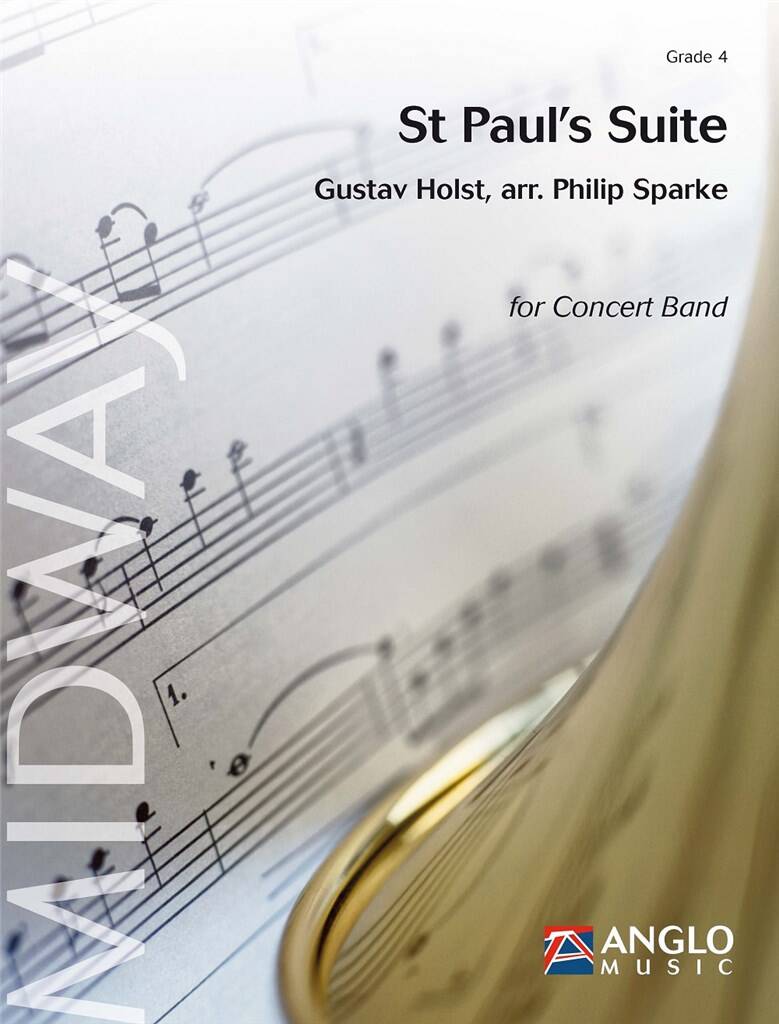 £164.99
£164.99St Paul's Suite - Gustav Holst
Between 1905 and 1934, Gustav Holst was Director of Music at St Paul's Girls School in Brook Green, London. St Paul's Suite, written for the school's string orchestra, was premiered there in 1913 and consists of four movements: an energetic Jig in 6/8 and 9/8, Ostinato, based on a simple 4-note theme, Intermezzo, an energetic and rhythmic dance and Finale, adapted from the Second Suite in F in which Holst brilliantly combines The Dargason and The English Dancing Master, with the traditional melody, Greensleeves.
Estimated dispatch 7-14 working days
-
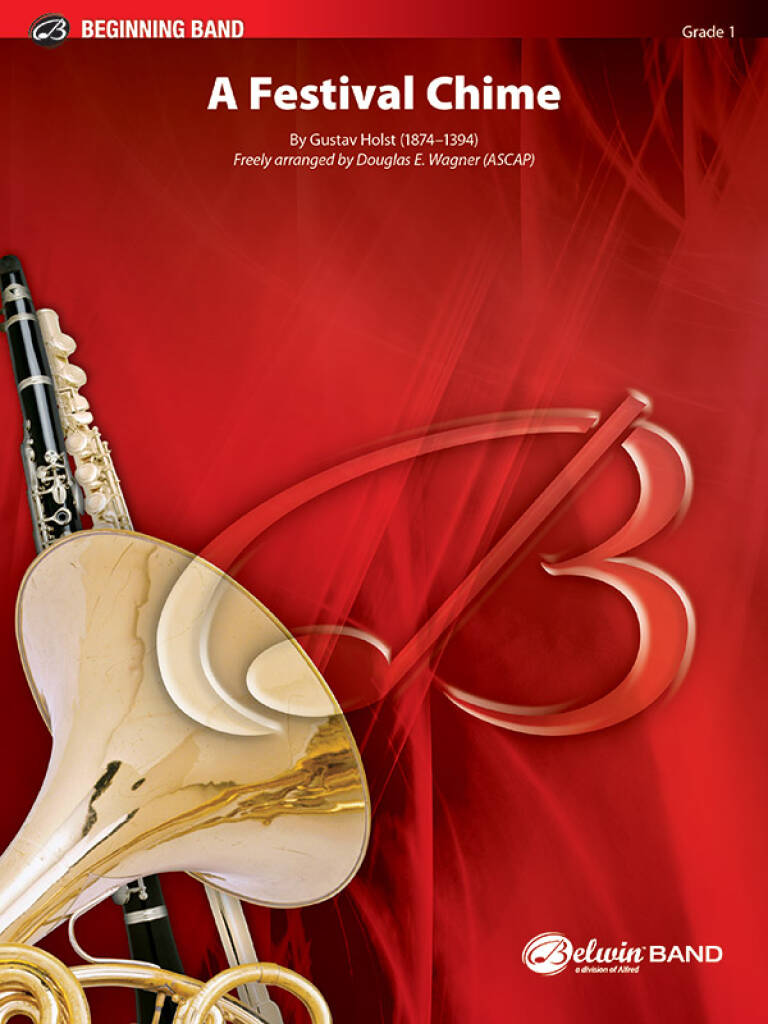 £51.50
£51.50A Festival Chime - Gustav Holst
The third movement of Opus 34 (Three Festival Choruses), which Gustav Holst penned in 1916, was originally scored for chorus with piano, orchestra, or military band. The easily recognized melody is a nineteenth century Welsh ballad, known to most as the hymn tune "St. Denio," set to the words of English poet, Clifford Bax. In 3/4, this characteristically delightful Holst theme has been freely arranged to incorporate elements of his original score with additional material included to heighten musical interest for contemporary concert bands and audiences alike. As the title implies, chimes are an integral part of this arrangement: however, there are alternate options provided inthe program notes if a suitable instrument is unavailable. This musical setting is complete with a variety of teaching and performance opportunities and a perfect fit for beginning concert bands. (2:00)
Estimated dispatch 7-14 working days
-
£106.95
The Grey Dawn is Breaking - James Meredith
The beautiful English/Irish folk song Kathleen Mavourneen is the basis for this ballad. The Grey Dawn Is Breaking offers an opportunity for young musicians to stretch their musical muscles by developing expression through dynamics, phrasing, and even rubato.
Estimated dispatch 7-14 working days
-
£106.95
Dorian Dialogue - Joseph Compello
Dorian Dialogue is a concert piece for band set in the Dorian mode. Evoking traditional English folk melodies, the first theme is rustic in nature and performed with gusto, while the contrasting second theme flows in a singing style. This piece would be a perfect selection to highlight an ensemble's talent in festival performance and help teach simple sixteenth note figures.
Estimated dispatch 7-14 working days
-
£67.95
March Of The Royals - Bill Calhoun
March of the Royals is a concert march for developing concert bands. Although familiar, with all the ingredients found in a typical march, this piece is written in a more regal and elegant style that is characteristic of English style marches. The piece is written for younger musicians but directors will find that it is carefully scored to help ensembles sound older than their years.
Estimated dispatch 7-14 working days
-
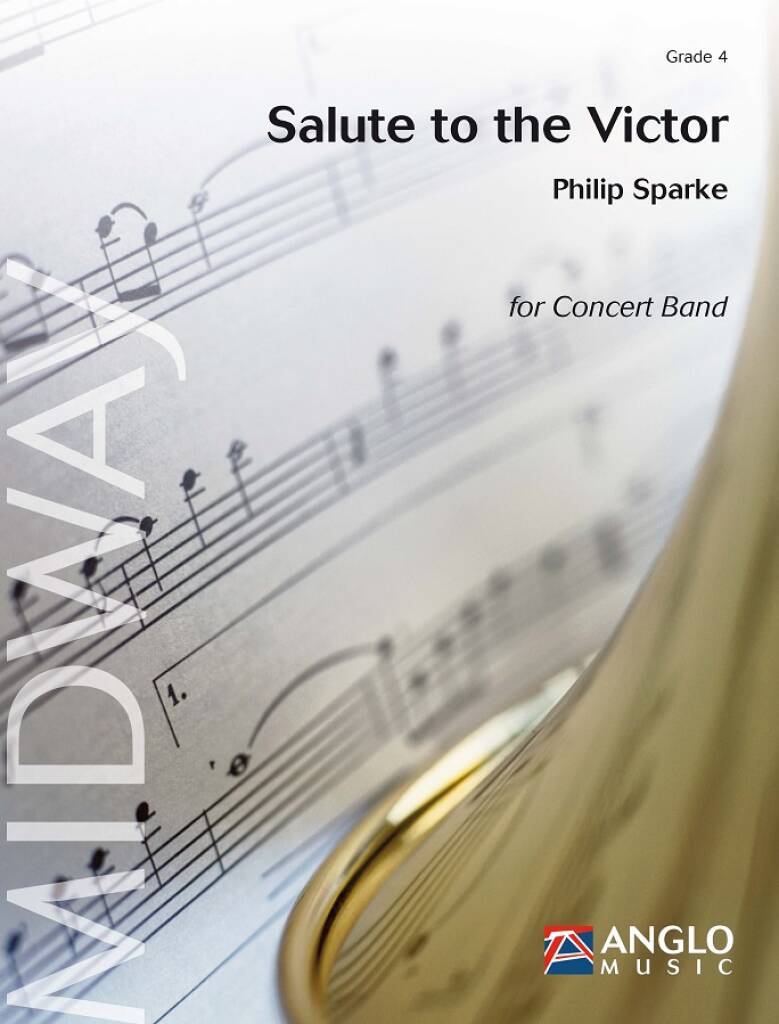 £99.99
£99.99Salute to the Victor - Philip Sparke
Salute to the Victor is in traditional march form and contains, as a tribute to Victor Grieve who was a devotee of English music (in particular that of Sir Edward Elgar), a short quote from Elgar's Sea Pictures in the trio. Salute tothe Victor was commissioned by Helen, Alex and James Grieve for the Golden Kangaroos (Hornsby Concert Band) from Sydney, Australia, in memory of their parents, Louise and Victor Grieve, Founder and Director.
Estimated dispatch 7-14 working days
-
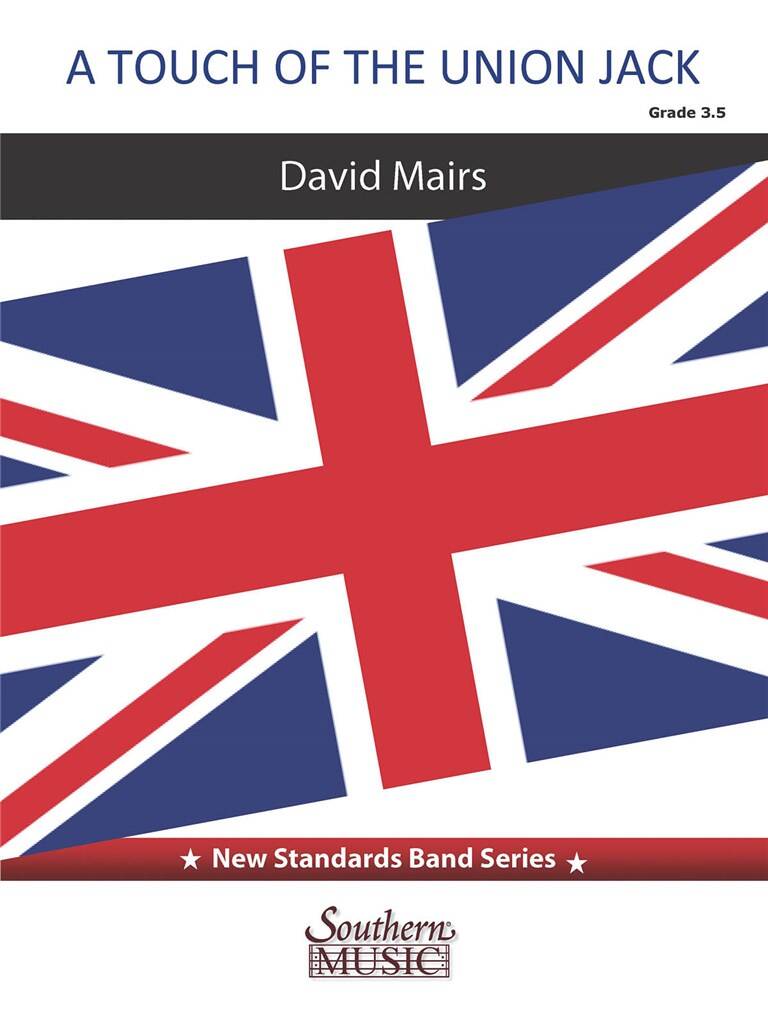 £76.99
£76.99A Touch of the Union Jack - Mairs
In three movements: 1. Coronation March, 2. Kingsfold and 3. Variations on a Green Theme. Coronation March is in ABA form with just a tip of the hat to William Walton's famous coronation marches written for British monarchs of the 20th century. Kingsfold is a lovely setting of the modal English traditional tune set to the text O Sing a Song of Bethlehem, featuring solos for flute and trumpet with chamber music textures. Variations on a 'Green' Theme begins with a jig in the percussion and reeds before slowly revealing the identity of the theme being varied - Greensleeves. A tour de force for advanced middle school bands or small high school bands.
Estimated dispatch 7-14 working days
-
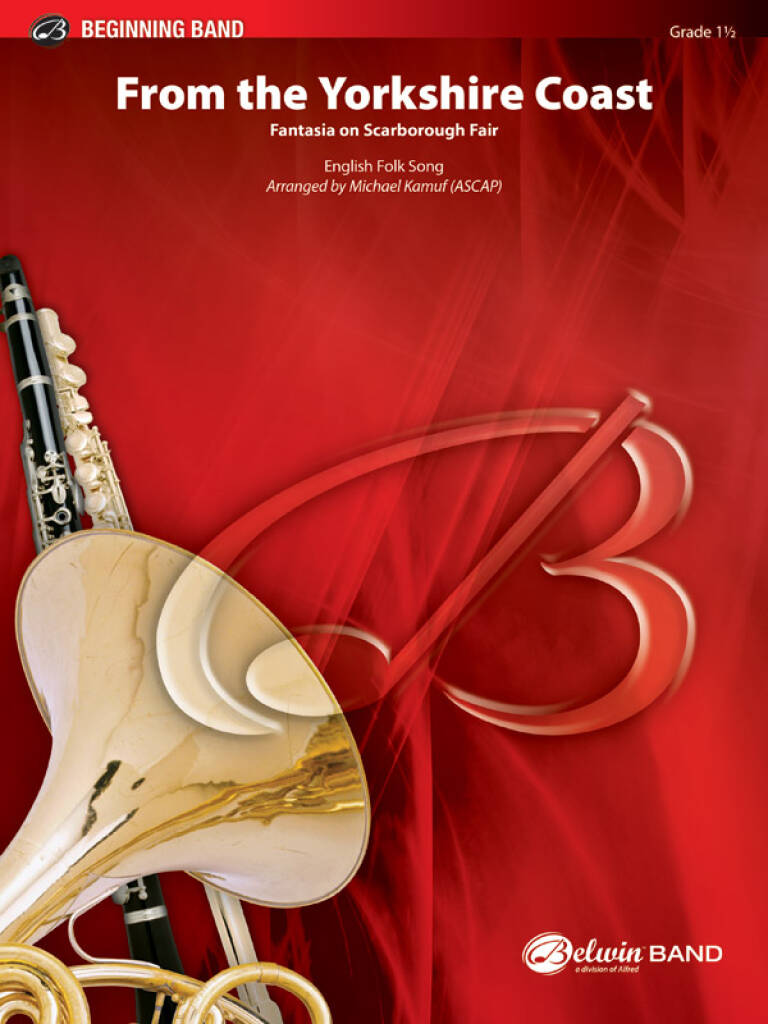 £54.95
£54.95From the Yorkshire Coast
Here's a fantasia for beginning band based on the English folk song Scarborough Fair. This beautiful melody is passed around to all instruments in this contemporary and expressive setting that is certain to be a favorite for students and audiences. A musical adventure. (2:15)
Estimated dispatch 7-14 working days
-
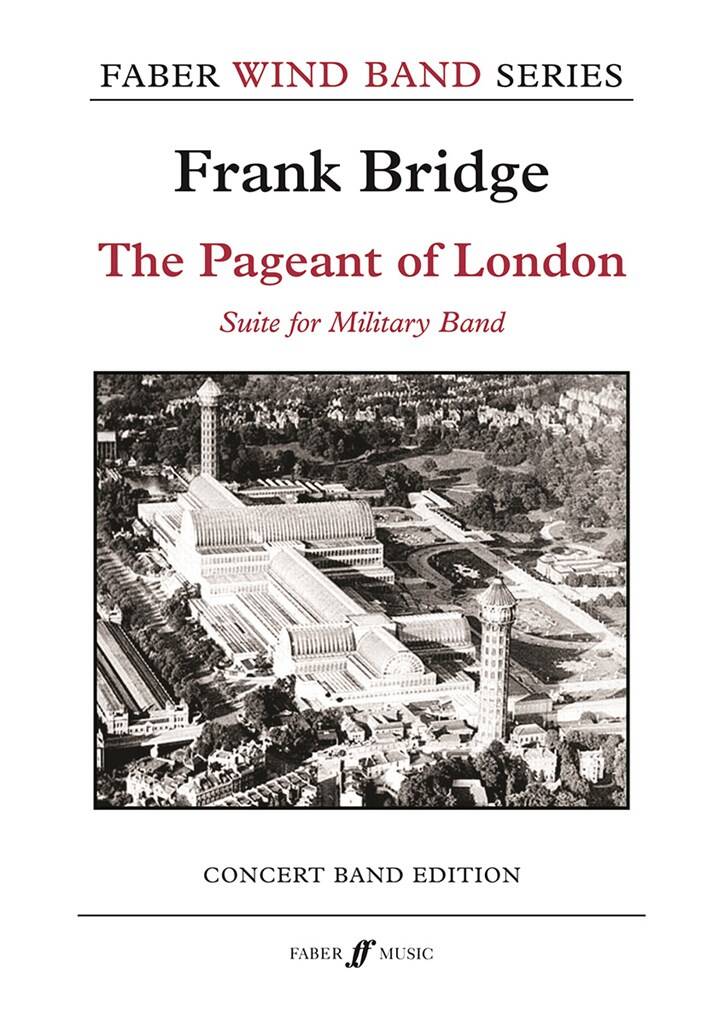 £95.00
£95.00The Pageant of London - Frank Bridge
Frank Bridge was one of the finest English composers of the first half of the 20th century. The Pageant of London is his only work for wind band, comprising of two marches, one scored from Bridge's best known organ piece and including the chimes ofBig Ben, plus three short renaissance pastiche items, one arranged from Playford (later used by Peter Warlock in Capriol Suite). The music is tuneful, approachable and, in the words of wind band 'legend' Timothy Reynish makes a fine alternative toHolst's two suites, which were composed around the same time. Reynish has introduced this work to concert bands right across the world. It has been performed in USA and the Far East, recorded by the celebrated Kosei Wind Orchestra of Japan and alsoby the BBC National Orchestra of Wales in the Chandos edition of Bridge Orchestral Music.
Estimated dispatch 7-14 working days
